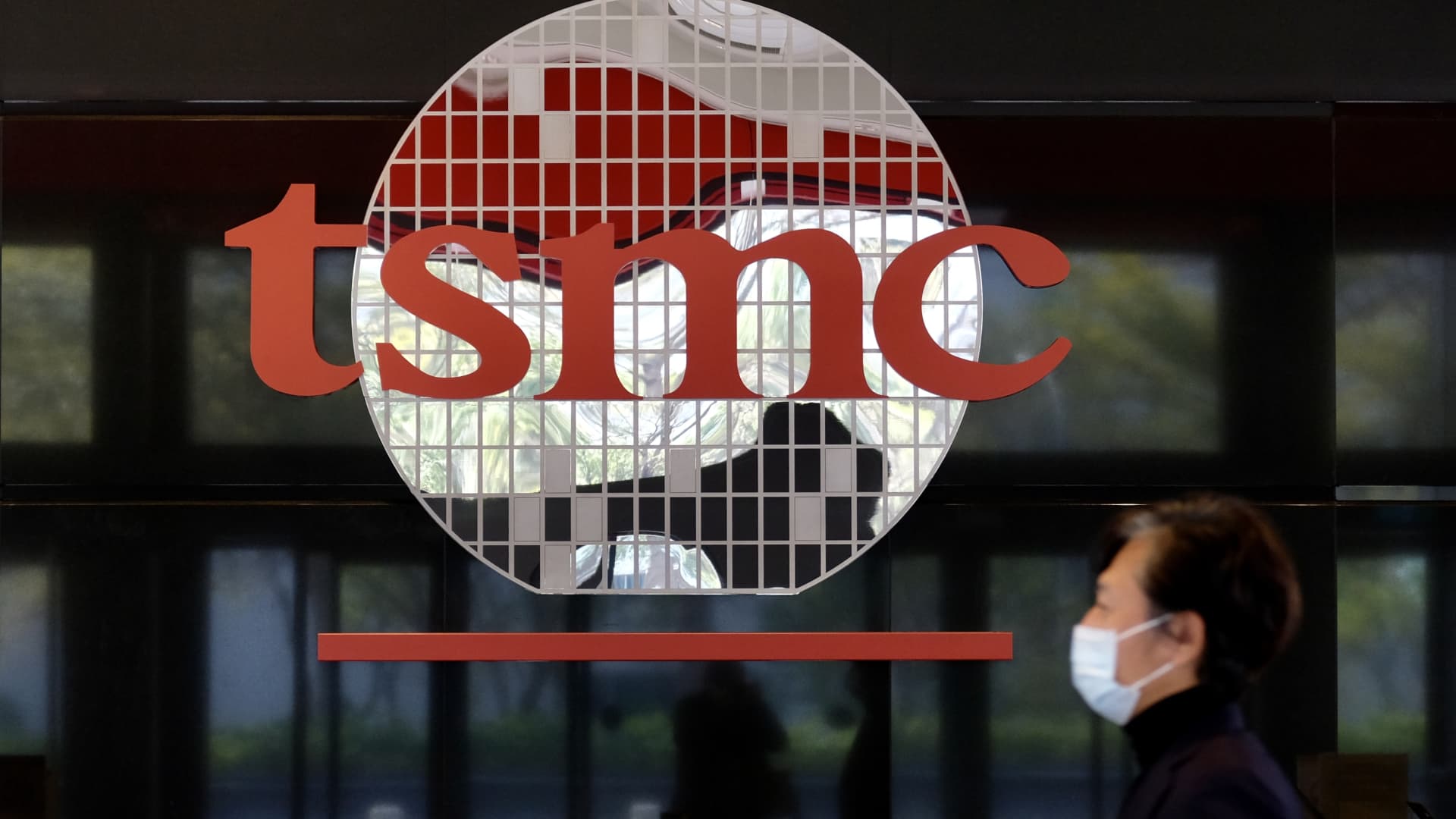
A man walks past TSMC’s logo at the company’s headquarters in Hsinchu, Taiwan.
Sam Yeh | AFP | Getty Images
Products that rely on semiconductors are set to get even more expensive as chip foundries prepare to increase their prices, according to analysts.
The world’s biggest foundries — including Taiwan Semiconductor Manufacturing Company, Samsung and Intel — are considering further price hikes, analysts told CNBC.
“Foundries have already increased prices 10-20% in the past year,” Bain semiconductor analyst Peter Hanbury told CNBC. “We expect a further round of price increases this year, but smaller (i.e. 5-7%).”
The foundries are increasing their prices partly because they can, but also because it’s becoming more expensive for them to fund their growing operations.
“The chemicals used in [chip] manufacturing have increased 10-20%,” Hanbury said. “Similarly, the labor required to build new semiconductor facilities has also seen shortages and increased wage rates.”
TSMC warned clients for the second time in less than a year that it plans to raise prices, Nikkei Asia reported last Tuesday, citing people briefed on the matter.
The Hsinchu-headquartered firm is reportedly planning to increase its prices by single digit percentage points. It has cited looming inflation concerns, rising costs and its own expansion plans as the reason for the price rises.
A spokesperson for TSMC told CNBC that the company does not comment on its pricing.
Elsewhere, rival Samsung is set to increase its chipmaking prices by up to 20%, according to a Bloomberg report last Friday. Samsung did not immediately respond to a CNBC request for comment.
“With the continued shortage of semiconductor chips the manufacturers are able to charge a premium as customers continue pushing to secure supply,” Hanbury said, adding that his firm expects the shortage to start to ease on certain chips by the end of the year.
Intel did not immediately respond to a CNBC request for comment.
Rising with inflation
Forrester analyst Glenn O’Donnell told CNBC that rising chip prices should surprise nobody in the current economic climate, adding that he expects prices to rise about 10-15%, or roughly in line with inflation.
Over the last two years, the coronavirus pandemic has helped to fuel a global chip shortage.
“Chipmakers face their own increasing supply issues that are exacerbated by the Ukraine war … and demand remains high while supply remains constrained,” O’Donnell said. “Energy prices are also on a tear, including electricity. Chipmaking requires an enormous amount of electric power.”
Despite an intensifying cost of living crisis, companies that integrate chips into their products may have to start passing on costs to consumers.
“Increased prices for chips will add stress to all of the downstream customers who will either need to pass on these price increases to their customers, which will be tough in the current environment, or accept lower profitability,” Hanbury said.
O’Donnell said that he expects PCs, cars, toys, consumer electronics, appliances, and many other products to get more expensive.
“Margins are already tight on such products, so they have no choice but to raise prices,” he said.
Syed Alam, global semiconductor lead at Accenture, told CNBC that the magnitude of any price increases will depend upon the share of semiconductor cost in the overall product cost. He added that it will also depend on the ability for manufacturers to cut costs in other areas and the competitive landscape of each product category.
“Looking at these factors, products that use more advanced chips such as GPUs (graphics processing units) and high-end CPUs (central processing units) are likely to go up in price,” Alam said.
But some sectors are starting to see reduced demand and they’ll struggle to pass these cost increases on to their customers, Hanbury said. “For example, the smartphone market has seen reduced demand, so they will not be able to pass on these increases as much,” he explained.






